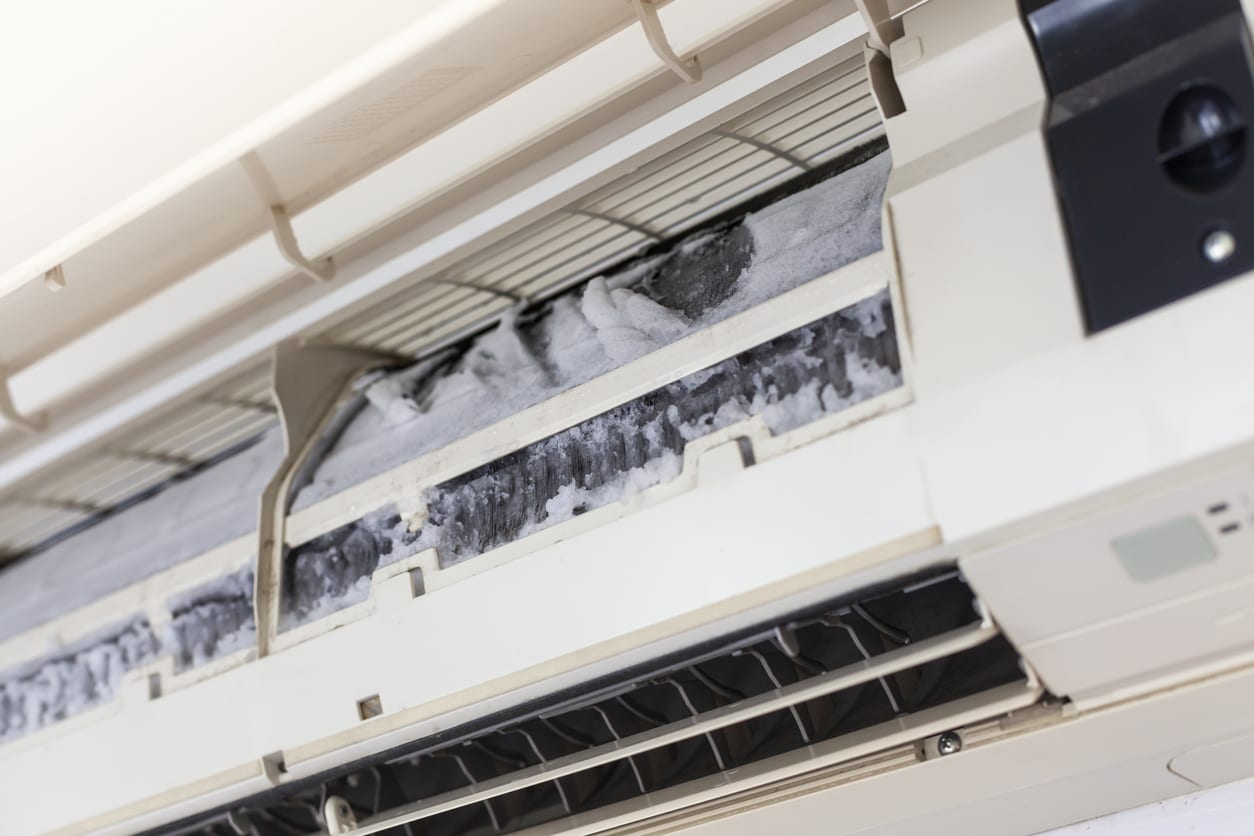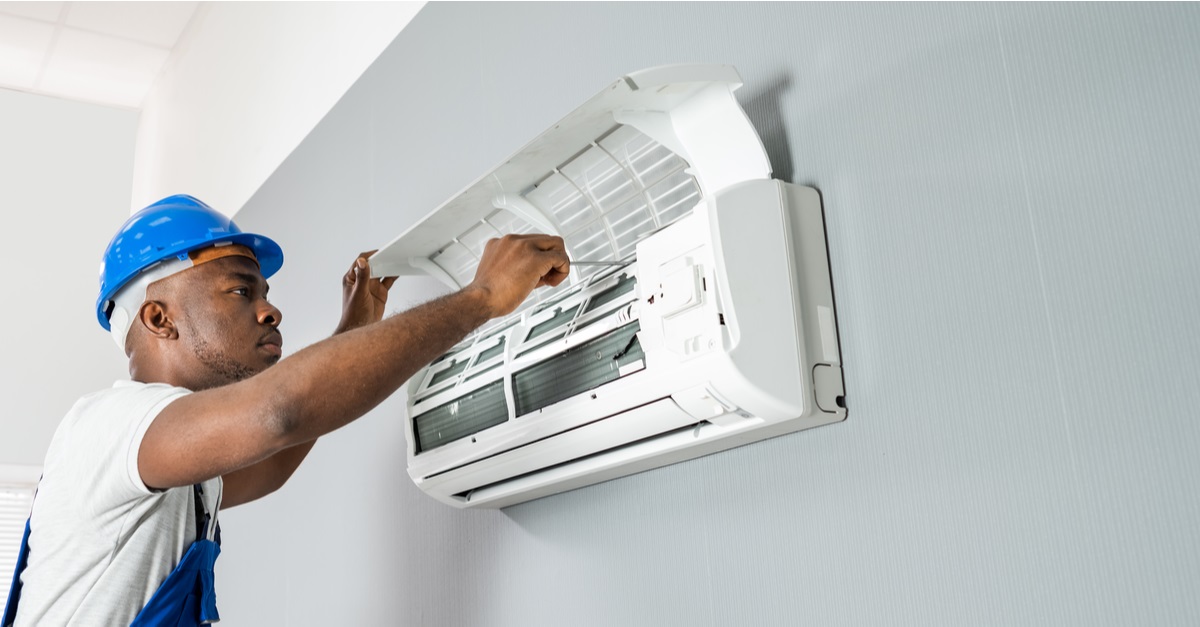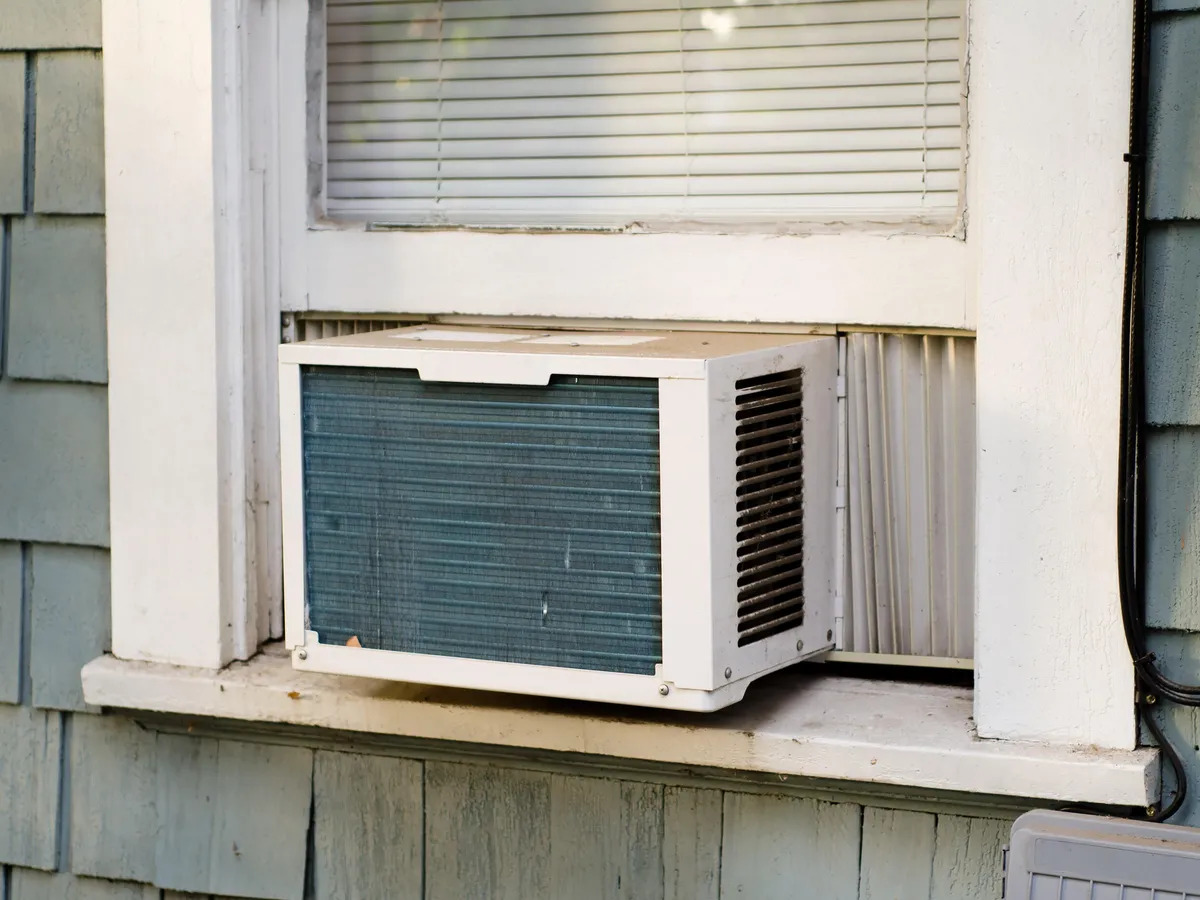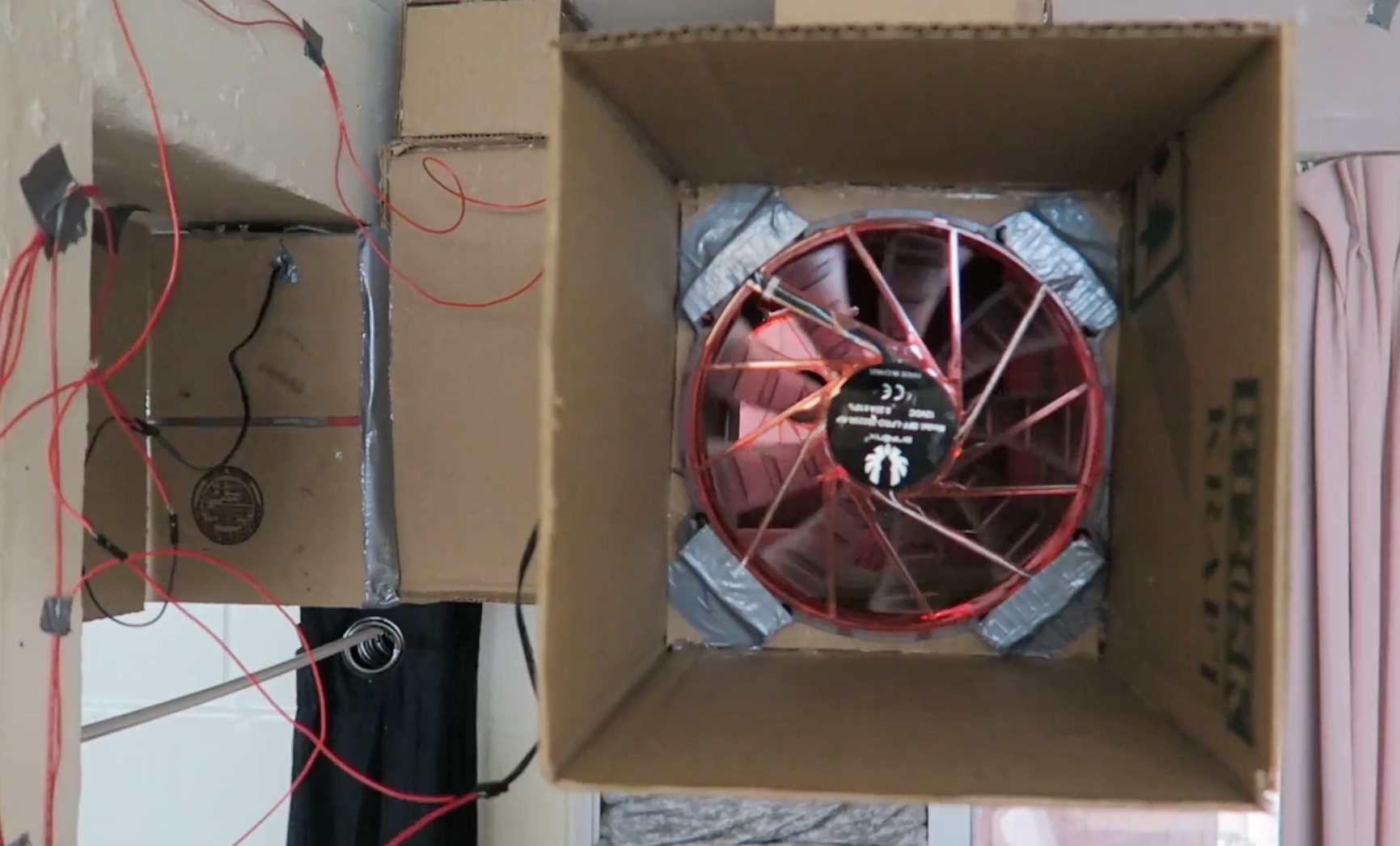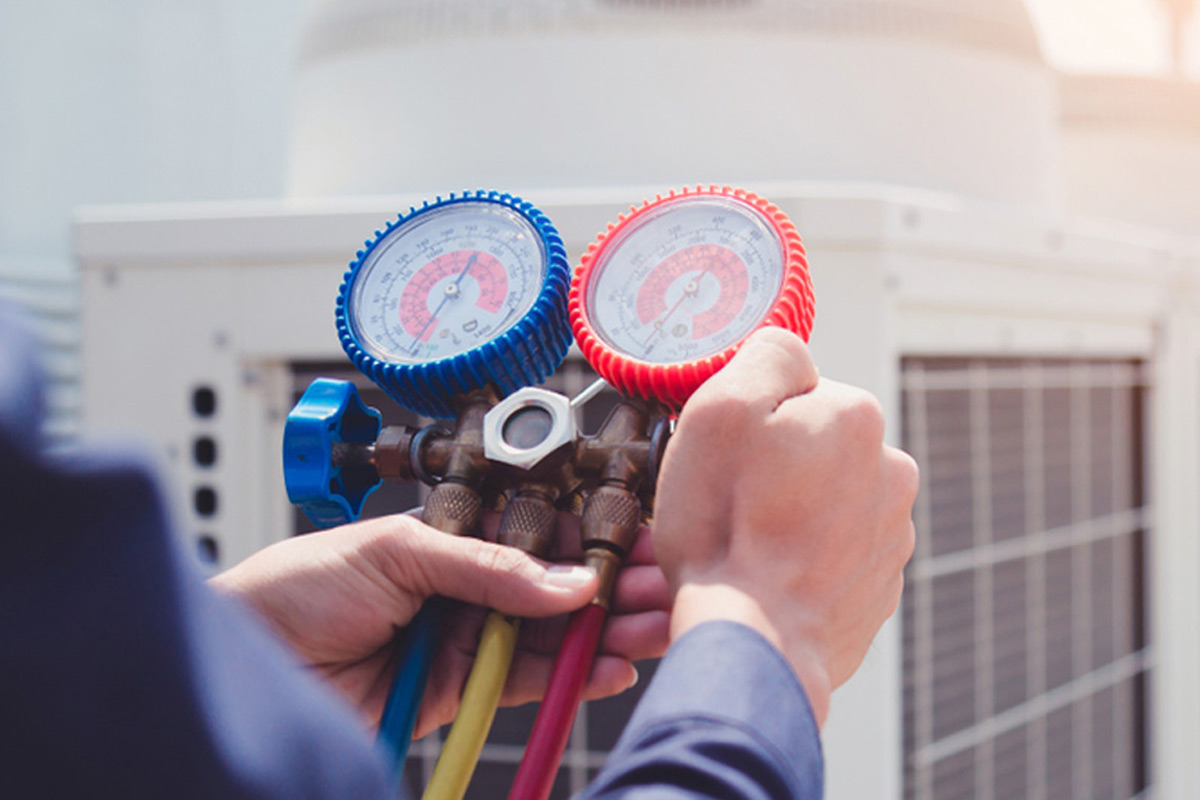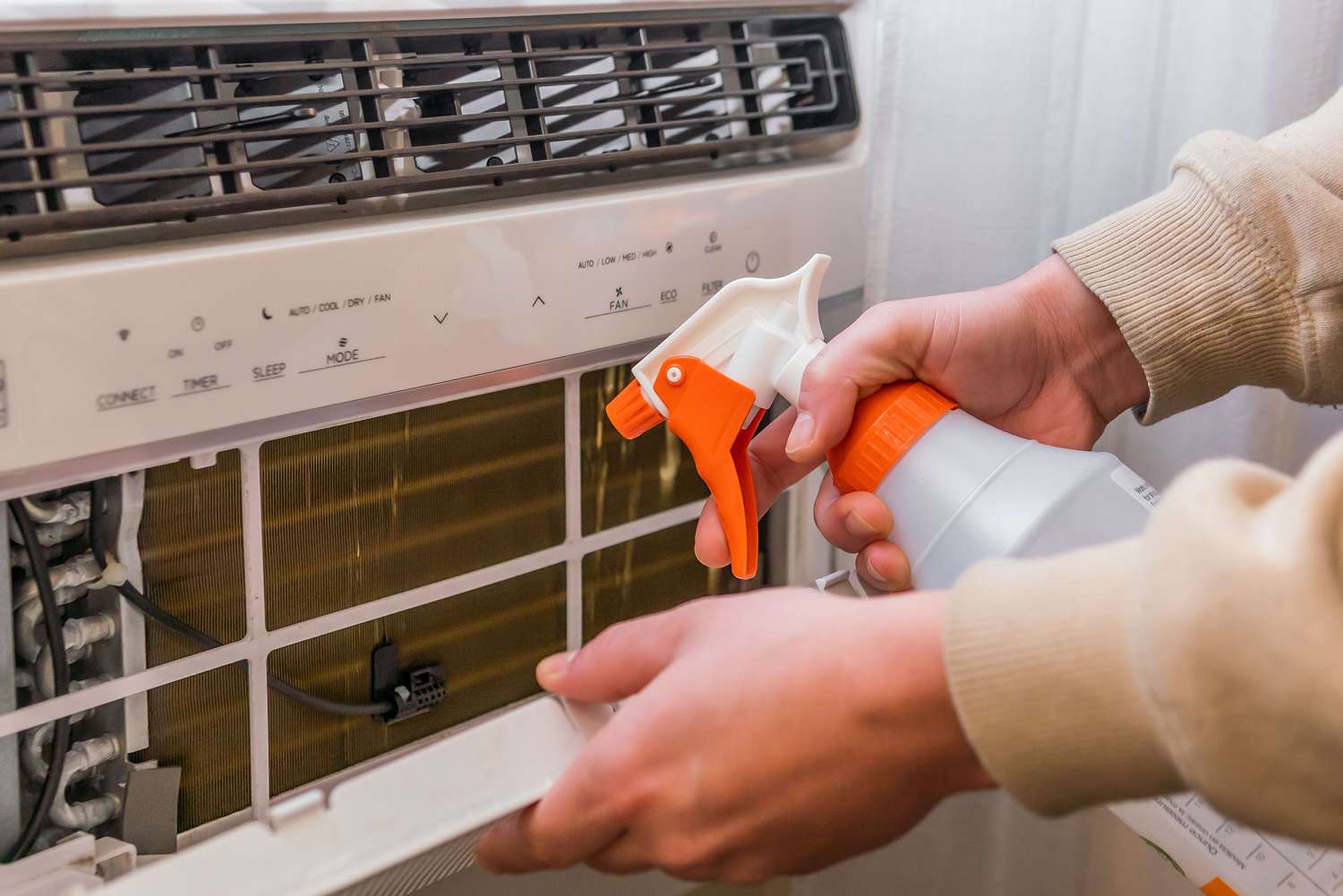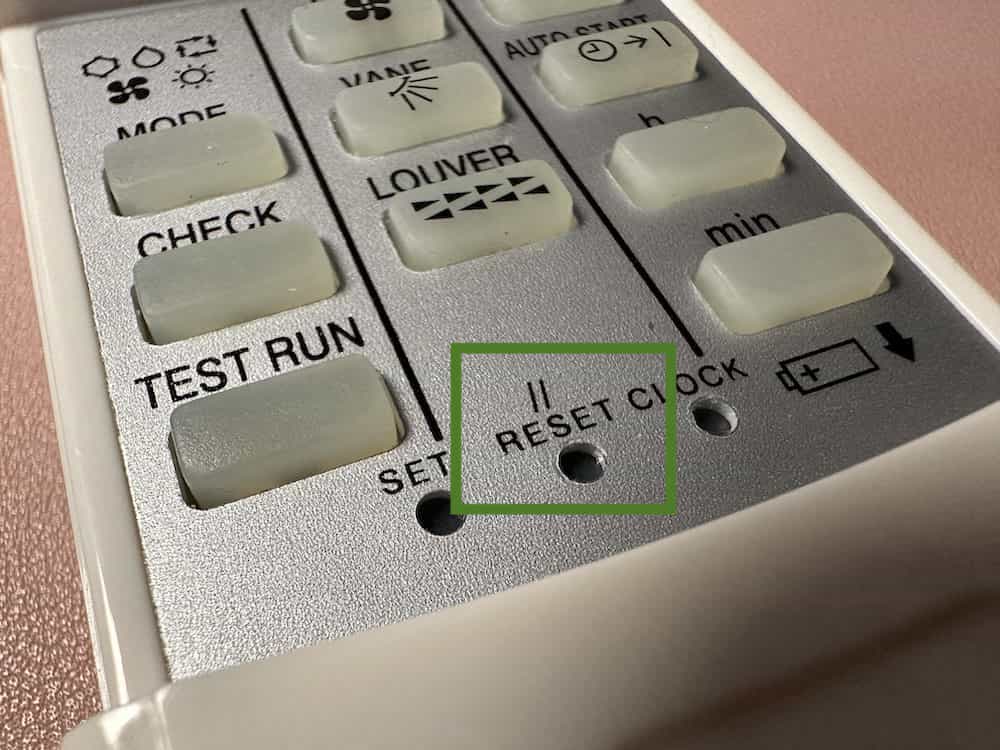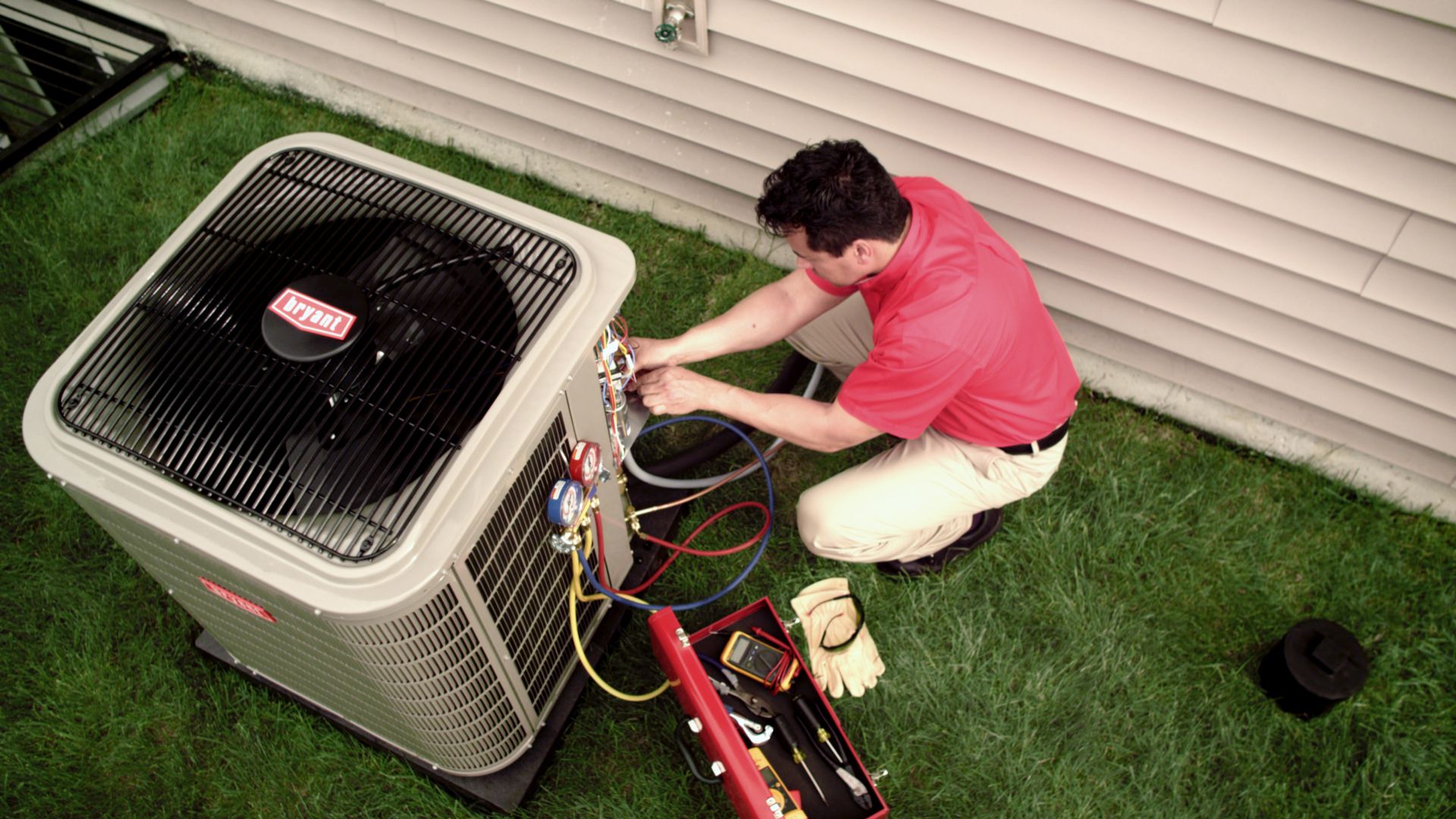Home>Home Maintenance>What Is Included In AC Maintenance?
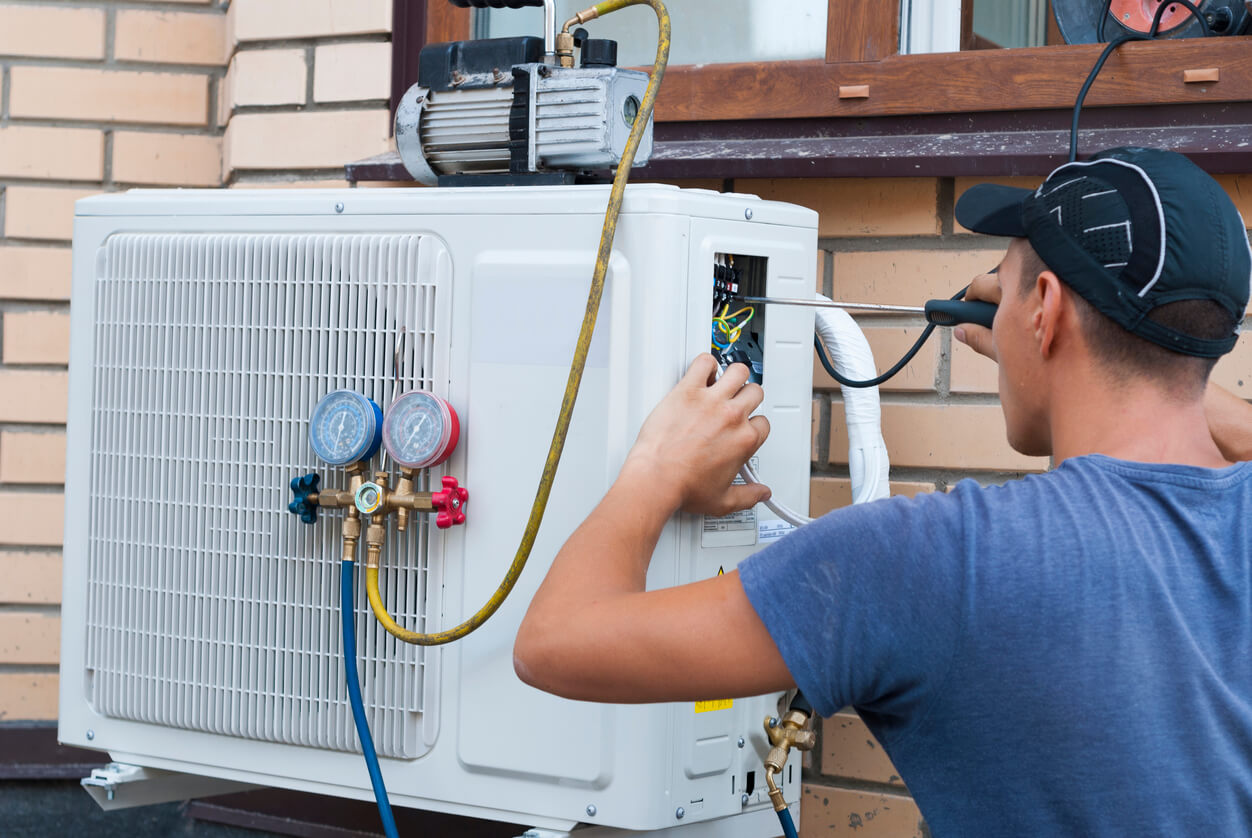

Home Maintenance
What Is Included In AC Maintenance?
Modified: October 20, 2024
Regular AC maintenance is essential for the optimal functioning of your cooling system. Our comprehensive home maintenance services include cleaning, inspecting, and tuning up your AC unit, ensuring efficient performance and prolonging its lifespan.
(Many of the links in this article redirect to a specific reviewed product. Your purchase of these products through affiliate links helps to generate commission for Storables.com, at no extra cost. Learn more)
Introduction
Maintaining your air conditioning (AC) system is crucial to ensure its longevity, efficiency, and optimal performance. Regular AC maintenance not only helps prevent breakdowns and costly repairs but also improves indoor air quality and lowers energy bills.
In this article, we will explore the various aspects of AC maintenance and what is included in a typical maintenance service. By understanding the important components of AC maintenance, you can take the necessary steps to keep your AC system in top shape all year round.
AC maintenance involves a series of cleaning, inspections, and adjustments performed by professionals who specialize in HVAC systems. These experts are trained to identify and address any issues that may affect the function and efficiency of your AC unit.
Regular maintenance should be carried out at least once a year, ideally before the summer season when the AC system will be used more frequently. By scheduling annual maintenance, you can ensure that your AC system is prepared to handle the summer heat and provide optimal cooling comfort.
Now let’s dive into the specific tasks that are typically included in an AC maintenance service.
Key Takeaways:
- Regular AC maintenance, including cleaning, inspections, and part lubrication, ensures efficient cooling, lower energy bills, and a healthier indoor environment.
- Annual AC maintenance by professionals prevents breakdowns, extends system lifespan, and provides optimal cooling comfort throughout the year.
Read more: What Does An AC Tune Up Include
Regular Cleaning and Inspection
One of the primary tasks included in AC maintenance is regular cleaning and inspection. Over time, debris, dust, and dirt can accumulate on the various components of your AC system, hindering its efficiency and performance.
During the cleaning process, the technician will clean the condenser and evaporator coils, removing any buildup that can hamper heat transfer. The coils play a vital role in cooling the air that is circulated throughout your home, so keeping them clean is essential for optimal performance.
Additionally, the technician will inspect and clean the AC filters. The filters accumulate dust and other airborne particles, reducing airflow and potentially causing strain on the system. Cleaning or replacing the filters ensures the proper flow of air and enhances indoor air quality.
As part of the inspection process, the technician will also examine the fan blades and motor for any signs of wear or damage. They will lubricate the moving parts, ensuring smooth operation and minimizing friction that can lead to increased energy consumption.
Regular cleaning and inspection help to identify any potential issues early on, preventing further damage and costly repairs down the line. It also improves the overall efficiency of the AC system, leading to energy savings and lower utility bills.
By investing in regular cleaning and inspections, you can extend the lifespan of your AC system and enjoy cool, clean air throughout your home.
Air Filter Replacement
One essential task included in AC maintenance is the replacement of the air filter. The air filter is responsible for removing dust, pollen, and other pollutants from the air before it is circulated throughout your home. Over time, the filter becomes clogged with debris, which can restrict airflow and reduce the efficiency of the AC system.
During the routine maintenance service, the technician will assess the condition of the air filter and determine whether it needs to be replaced. This step is crucial in maintaining good indoor air quality and preventing the buildup of contaminants in your living space.
The frequency of air filter replacement depends on several factors, including the type of filter used, the level of pollutants in your area, and the usage of your AC system. As a general guideline, it is recommended to replace disposable filters every 1-3 months, while reusable filters should be cleaned regularly according to the manufacturer’s instructions.
Regular air filter replacement not only improves the efficiency of your AC system but also contributes to better respiratory health for you and your family. Clean air filters help reduce allergens, dust, and other irritants, making your indoor environment cleaner and healthier.
It is important to note that different AC systems may require different types of air filters. Consult your HVAC technician or refer to your user manual to ensure you choose the correct size and type of filter for your specific AC unit.
In summary, regularly replacing the air filter is a simple yet essential maintenance task that enhances the performance of your AC system, improves indoor air quality, and promotes a healthier living environment.
Coil Cleaning
Another crucial aspect of AC maintenance is coil cleaning. The coils in your AC system, including the evaporator coil and condenser coil, play a vital role in the heat transfer process that cools the air in your home.
Over time, these coils can become dirty and accumulate debris, hindering their efficiency. Dirty coils restrict airflow and can cause the AC system to work harder, leading to increased energy consumption and higher utility bills.
During a routine maintenance service, the technician will clean the coils, ensuring they are free from dust, dirt, and other contaminants. This cleaning process involves the use of specialized tools and cleaning solutions to remove the buildup effectively.
Clean coils allow for better heat exchange, allowing your AC system to cool the air more efficiently. This not only improves the overall performance of the system but also extends its lifespan.
In addition to cleaning the coils, the technician may also check for any signs of coil damage, such as corrosion or leaks. If any issues are detected, appropriate measures can be taken to address them promptly and prevent further damage.
Regular coil cleaning helps maintain the efficiency of your AC system, ensuring optimal cooling performance throughout your home. It also helps to improve indoor air quality by preventing the circulation of dirty air.
It is important to note that coil cleaning is a task that should be performed by a trained professional. Attempting to clean the coils yourself may result in damage to the components or injury. Therefore, it is best to leave this task in the hands of experienced HVAC technicians.
To summarize, regular coil cleaning is an essential part of AC maintenance that improves energy efficiency, extends the lifespan of your system, and ensures better indoor air quality.
Condensate Drain Cleaning
Condensate drains play a crucial role in removing excess moisture from your AC system. As the warm air is cooled by the evaporator coil, condensation forms on the coil and drips into the condensate pan. From there, it is drained out of your home through a condensate drain pipe.
Over time, dirt, algae, and other debris can accumulate in the condensate drain, leading to clogs and blockages. When the condensate drain is obstructed, it can result in water leakage and potential damage to your home.
During a routine AC maintenance service, the technician will inspect and clean the condensate drain to ensure it is clear and functioning properly. They may use a specialized solution or a vacuum to remove any buildup and prevent future clogs.
Cleaning the condensate drain not only prevents water damage but also helps to maintain optimal performance and efficiency of your AC system. When the drain is clear, the moisture is efficiently removed, preventing the growth of mold and mildew in your HVAC system.
It is important to note that some AC systems may have a condensate pump, which helps to remove water from the condensate pan when there is no natural slope for drainage. The condensate pump should also be inspected and cleaned during the maintenance service to ensure its proper functioning.
If you notice any signs of water leakage or pooling around your AC unit, it’s essential to have the condensate drain cleaned promptly to prevent further damage and potential mold growth.
Regular condensate drain cleaning is a preventive measure that helps to maintain the efficiency and longevity of your AC system, ensuring reliable cooling and minimizing the risk of water damage to your home.
Read more: What Does An HVAC Service Include
Blower Motor and Belt Inspection
The blower motor and belt are integral components of your AC system that contribute to the circulation and distribution of cooled air throughout your home. As part of a comprehensive AC maintenance service, the technician will inspect these components to ensure they are in good condition and functioning properly.
The blower motor is responsible for driving the fan that pushes air over the evaporator coil and into the ductwork. The technician will examine the blower motor for any signs of wear, damage, or excessive noise. They will also lubricate the motor if necessary to ensure smooth operation.
In addition to the blower motor, the technician will inspect the belt that connects the motor to the blower assembly. They will check for any signs of wear, such as cracks or fraying. If the belt is worn out or damaged, they will recommend replacing it to prevent issues such as reduced airflow or a malfunctioning blower.
An improperly functioning blower motor or a worn-out belt can lead to decreased airflow in your AC system, diminishing its cooling capacity and overall performance. By inspecting and addressing any issues with these components, the technician can help ensure that your AC system operates at its best.
Regular inspection and maintenance of the blower motor and belt can help prevent breakdowns, extend the lifespan of your AC system, and ensure efficient and reliable cooling throughout your home.
It is important to note that the blower motor and belt inspection should be performed by a trained professional. Attempting to inspect or repair these components without proper knowledge or experience can result in further damage or injury.
In summary, the inspection of the blower motor and belt is a vital part of AC maintenance that ensures the proper functioning of your AC system and promotes optimal airflow and cooling efficiency in your home.
Electrical Connection Examination
Ensuring that the electrical connections in your AC system are secure and functioning properly is an important aspect of AC maintenance. Faulty or loose connections can lead to electrical issues, system malfunctions, and even potential hazards.
During a routine maintenance service, the technician will carefully inspect the electrical connections in your AC system. They will check for any signs of loose wires, frayed cables, or damaged components. Proper insulation and secure connections are essential for safe and efficient operation.
The technician will also check the electrical voltage and current levels to ensure they are within the manufacturer’s specifications. Monitoring these levels helps identify any abnormalities that may affect the performance and lifespan of your AC system.
In addition to inspecting the connections, the technician will also assess the condition of electrical components such as capacitors, relays, and contactors. These components are responsible for initiating and controlling various functions of the AC system. Any defective components will be identified and replaced if necessary.
Regular examination of the electrical connections minimizes the risk of electrical failures, protects your AC system from damage, and promotes safe operation. It also helps to optimize energy efficiency and reduce the likelihood of costly repairs.
It is crucial to emphasize that working with electrical components can be dangerous and should only be conducted by a qualified technician. If you notice any signs of electrical issues, such as flickering lights or sparks, it is recommended to turn off your AC system and contact a professional for inspection and repair.
In summary, thorough examination of the electrical connections and components during AC maintenance helps ensure the safety, performance, and reliability of your AC system. It is an essential step in promoting efficient cooling and preventing electrical hazards.
Regular AC maintenance should include cleaning or replacing the air filter, checking and cleaning the coils, inspecting and lubricating moving parts, checking refrigerant levels, and ensuring all electrical components are working properly.
Thermostat Calibration
The thermostat is the control center of your AC system, responsible for regulating the temperature and ensuring that your home remains comfortable. However, over time, thermostats can become inaccurate, leading to temperature fluctuations and inefficient cooling.
As part of a comprehensive AC maintenance service, the technician will calibrate the thermostat to ensure its accuracy and proper functionality. This calibration process involves adjusting the thermostat’s temperature readings to match an external reference, such as a digital thermometer.
During the calibration process, the technician will also inspect the thermostat for any physical damage or signs of wear. They will check the batteries and replace them if necessary, ensuring that the thermostat can operate effectively.
Accurate thermostat calibration is crucial for proper temperature control in your home. An improperly calibrated thermostat can result in inaccurate temperature readings, leading to discomfort and unnecessary energy usage.
Regular calibration of the thermostat helps to optimize your AC system’s efficiency and maintain consistent and comfortable temperatures in your living space. It allows your AC system to respond accurately to your desired settings and helps prevent unnecessary strain on the system.
If you notice any inconsistencies in temperature or suspect that your thermostat may not be functioning correctly, it is recommended to have it calibrated by a professional technician. They have the expertise and tools to ensure accurate temperature control and efficient operation of your AC system.
In summary, thermostat calibration is a vital aspect of AC maintenance that ensures accurate temperature control, improved energy efficiency, and enhanced comfort in your home. Regular calibration helps maintain a more efficient and reliable AC system.
Lubrication of Moving Parts
Proper lubrication of the moving parts in your AC system is essential for smooth operation and optimal performance. Over time, friction and wear can occur, leading to increased energy consumption, reduced efficiency, and potential damage to the components.
During a routine AC maintenance service, the technician will lubricate the moving parts of the system. This typically includes the motor bearings, fan blades, and other rotating components. The use of appropriate lubricants helps reduce friction and wear, ensuring smooth and efficient operation.
Lubricating the moving parts not only improves the overall performance of your AC system but also extends the lifespan of the components. By reducing friction, lubrication reduces the strain on the motor and other parts, minimizing the risk of premature failure or breakdown.
In addition to applying lubrication, the technician will also inspect the condition of the moving parts. They will check for any signs of excessive wear or damage that may require repair or replacement.
Proper lubrication and maintenance of the moving parts contribute to a quieter and more efficient AC system. You may notice a reduction in noise levels and improved airflow, resulting in a more comfortable and relaxing indoor environment.
It is important to note that the type and amount of lubrication needed may vary depending on the specific components of your AC system. Consult with a professional technician to ensure the correct lubricants are used and applied in the appropriate quantities.
In summary, regular lubrication of the moving parts in your AC system is a critical maintenance task that promotes smooth operation, improves efficiency, and prolongs the lifespan of the components. It is an investment in the long-term performance and reliability of your AC system.
Read more: What Is Included In A Home Inspection
Refrigerant Level Check
The refrigerant is the substance that absorbs heat from the air in your home and transfers it outside, allowing your AC system to cool the indoor environment. The correct amount of refrigerant is crucial for efficient and effective cooling.
As part of a comprehensive AC maintenance service, the technician will perform a refrigerant level check. This involves measuring the amount of refrigerant in your system and ensuring it is within the manufacturer’s recommended range.
If the refrigerant level is too low, it can indicate a leak within the system. A refrigerant leak not only compromises the efficiency of your AC system but can also damage the compressor, leading to more significant repair costs.
During the check, the technician will identify any leaks and address them promptly. They will then recharge the system with the appropriate amount of refrigerant to restore optimal cooling performance.
Maintaining the correct refrigerant level is essential for the efficiency and longevity of your AC system. Insufficient refrigerant can result in inadequate cooling and increased energy consumption, while overcharging can lead to excessive pressure and potential damage to the system.
It is important to note that refrigerant handling requires specialized knowledge and equipment. Only trained professionals should handle refrigerant checks and recharges to ensure safety and compliance with environmental regulations.
By regularly checking and maintaining the correct refrigerant level in your AC system, you can enjoy consistent and efficient cooling, lower energy bills, and reduce the risk of extensive repairs in the future.
In summary, a refrigerant level check is a crucial part of AC maintenance that ensures proper cooling performance and energy efficiency. By addressing any leaks and maintaining the correct refrigerant levels, you can maximize the lifespan and performance of your AC system.
Duct Inspection
The ductwork in your home plays a critical role in distributing the cooled air from your AC system to each room. Over time, ducts can develop leaks, blockages, or other issues that compromise the efficiency of your AC system.
During a comprehensive AC maintenance service, the technician will perform a thorough duct inspection. This involves examining the ductwork for any signs of damage, such as cracks, gaps, or loose connections.
Air leaks in the ductwork can result in a significant loss of cooled air, reducing the efficiency of your AC system and leading to increased energy consumption. By identifying and sealing these leaks, the technician can help improve the overall cooling efficiency of your home.
In addition to air leaks, the technician will also check for any blockages or debris in the ducts. Accumulated dust, dirt, and other particles can restrict airflow and reduce the effectiveness of your AC system. Cleaning the ducts ensures optimal airflow and helps maintain good indoor air quality.
If the inspection reveals significant damage or blockages in the ductwork, the technician may recommend repairs or even duct replacement. This will help ensure proper airflow and enhance the performance of your AC system.
Regular duct inspections and maintenance are crucial for efficient cooling and optimal performance of your AC system. By addressing any duct issues, you can maximize airflow, improve energy efficiency, and enhance comfort in your home.
It is important to note that duct inspections typically require professional expertise and specialized tools. Attempting to access or repair ductwork without proper knowledge or equipment can result in further damage or injury. Therefore, it is best to leave duct inspections and repairs to experienced HVAC technicians.
In summary, regular duct inspections are a vital part of AC maintenance that ensures efficient airflow, improved energy efficiency, and overall performance. By addressing any issues with the ductwork, you can enjoy consistent and comfortable cooling throughout your home.
Safety and Efficiency Checks
Ensuring the safety and efficiency of your AC system is a critical aspect of routine maintenance. Safety checks help prevent potential hazards, while efficiency checks optimize the performance of your AC system, saving energy and reducing operating costs.
During an AC maintenance service, a technician will perform safety checks to identify any potential risks. This involves inspecting electrical connections, checking for gas leaks (if applicable), and verifying that safety features, such as the overload protection and emergency shut-off switches, are functioning correctly.
Efficiency checks focus on optimizing the performance of your AC system. The technician will measure the airflow and assess the cooling capacity to ensure that they meet the manufacturer’s specifications. They may also examine the thermostat settings and make any necessary adjustments to improve efficiency.
In addition, the technician will evaluate the overall performance of the AC system, looking for signs of inefficiency or excessive wear and tear. They may measure the system’s energy consumption and provide recommendations to improve its energy efficiency.
Regular safety and efficiency checks not only help prevent potential hazards but also ensure that your AC system operates at its best, providing optimal cooling comfort while minimizing energy waste.
If any safety issues or efficiency concerns are identified during the maintenance service, the technician will discuss them with you and recommend appropriate solutions. This may involve repairs, component replacements, or adjustments to the settings or controls of your AC system.
By addressing safety risks and optimizing efficiency, you can enjoy peace of mind knowing that your AC system is operating safely, effectively, and cost-efficiently.
In summary, safety and efficiency checks are essential components of AC maintenance. They help identify and address potential hazards, optimize the performance of your AC system, and promote energy efficiency. Regular checks contribute to a safe and comfortable indoor environment while minimizing operating costs.
Conclusion
Maintaining your AC system is crucial for its longevity, efficiency, and optimal performance. Regular AC maintenance ensures that your system operates reliably, provides efficient cooling, and contributes to a comfortable indoor environment.
In this article, we have covered the various tasks that are typically included in AC maintenance. From regular cleaning and inspection to air filter replacement, coil cleaning, condensate drain cleaning, blower motor and belt inspection, electrical connection examination, thermostat calibration, lubrication of moving parts, refrigerant level check, duct inspection, and safety and efficiency checks, each task plays an important role in maintaining the health and functionality of your AC system.
By scheduling annual AC maintenance with a trained professional, you can address potential issues before they become major problems. Professionals have the expertise and specialized tools to identify and resolve any issues that may affect the performance of your AC system.
Investing in AC maintenance not only helps prevent breakdowns and costly repairs but also improves indoor air quality, reduces energy consumption, and lowers utility bills. Regular maintenance ensures that your AC system operates efficiently and effectively, providing you with optimal cooling comfort throughout the year.
Remember that proper AC maintenance requires the expertise of trained professionals. Attempting to perform maintenance tasks without the necessary knowledge and experience can lead to further damage or safety risks. It is best to rely on qualified HVAC technicians with a deep understanding of AC systems.
In conclusion, regular AC maintenance is essential for the health and performance of your AC system. By following a comprehensive maintenance routine, you can enjoy a reliable, energy-efficient, and comfortable cooling experience in your home for years to come.
Frequently Asked Questions about What Is Included In AC Maintenance?
Was this page helpful?
At Storables.com, we guarantee accurate and reliable information. Our content, validated by Expert Board Contributors, is crafted following stringent Editorial Policies. We're committed to providing you with well-researched, expert-backed insights for all your informational needs.



